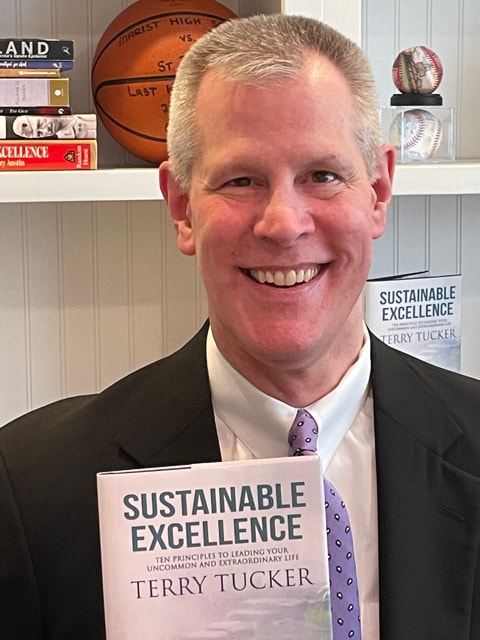|
Are you doing the work you thought you would do when you were young or when you graduated from high school or college? (Incidentally, most boys dream of growing up to become professional athletes [17%], while most girls dream of growing up to become teachers [22%].) How many times has your job or even career field morphed into something you never thought you would be doing? According to the website Zippia, on average, men hold 12.5 jobs in their lifetime, while women hold 12.1 The median employee tenure for men in 2022 was 4.3 years, while the median employee tenure for women in 2022 was 3.8 years. If there is a career shift, the average person switches careers around 39 years of age. The website, Indeed, sites some of the more common reasons for a career shift are: 1. Earning more money - Changing careers can be a way to increase earnings potential and achieve greater financial security. 2. Following a passion - Making a career change can allow you to pursue your purpose and do something that brings you fulfillment. 3. Improving work-life balance - A career change can improve your work-life balance and help you increase your well-being. 4. Working with new leadership - Changing careers can provide the opportunity to find a position with a better supervisor and corporate culture. 5. Gaining experience - A career change can help you gain the experience you need for career growth, development, and advancement. 6. Focus on secondary interests - There is a growing trend to do freelance work alongside your current job. If successful, freelancing could lead to full-time employment. Check out the video below to learn the interesting story of one of the most influential people ever to provide financial advice to the masses and how many times her job or career field changed. Also, please leave me a comment about the job or career changes you have made and why you decided to make the particular change.
0 Comments
What rules rule your life?
Having rules that govern our behavior helps us to lead a life that is meaningful by providing a structure and foundation that act like guardrails for keeping us pointed in the direction of our best life. I recently had a text exchange with a college professor who commented that Jordan Peterson, the psychologist, author, and commentator, has a dark way of telling the truth, especially when it comes to how we treat ourselves and others. The following are Jordan Peterson's 10 Rules for Life that he believes can help us use the hard truths to become the best version of ourselves: 1. Stand up straight with your shoulders back. 2. Treat yourself like someone you are responsible for helping. 3. Make friends with people who want the best for you. 4. Compare yourself to who you were yesterday, not to who someone else is today. 5. Do not let your children do anything that makes you dislike them. 6. Set your house in perfect order before you criticize the world. 7. Pursue what is meaningful, not what is expedient. 8. Tell the truth - or at least don't lie. 9. Assume the person you are listening to might know something you don't. 10. Be precise in your speech. What do you think of Peterson's rules? Are there rules you would add or subtract? Do you live your life by a set of rules that keep you pointed toward your purpose? Please leave me a comment about your thoughts on Jordan Peterson's Rules for Life and what you use to rule your life. Please check out my latest audio recording from the Grit & Grace Podcast With Tonya Bruton. You can listen to the podcast by clicking on the AUDIO PODCASTS & RADIO INTERVIEWS button at the top of this page, then click on the PODCAST INTERVIEWS tab and scroll down and click on the Grit & Grace Podcast tab.
Please check out my latest YouTube recording from the Presently Aqui Podcast with Claudia Torres. You can watch the podcast by clicking on the PODCAST & SPEAKING VIDEOS button at the top of this page and scroll down and click on the Presently Aqui Podcast tab.
New YouTube Recording Available From The 21st Century Expression Podcast with Marty Education10/25/2023 Please check out my latest YouTube recording from the 21st Century Expression Podcast with Marty Education. You can watch the podcast by clicking on the PODCAST & SPEAKING VIDEOS button at the top of this page and scroll down and click on the 21st Century Expression Podcast tab.
Do your leadership standards and qualities stand the test of time? Would the leadership attributes that were in vogue 20, 30, or 50 years ago still be able to be used to effectively lead people today? Here are five traits of great leaders according to fifty years of Gallup Research that was published in Inc. Magazine (Mautz - 12/16/2019): 1. They Inspire Teams To Get Exceptional Work Done - A primary manner to inspire teams is through communication where you mind the 3 P's: project confidence, provide critical information with hope and reality, and promoting a sense of togetherness and belonging. 2. They Set Goals And Provide Resources For Teams To Excel - The best goals get everyone on the same page working to accomplish a common objective. To accomplish this, set 3C goals: common, compelling, and cooperative. 3. They Influence Others To Act, Pushing Through Adversity And Resistance - They realize the influence comes from personal power, not positional power. They listen with the intent to act. In times of adversity they realize they're the eye of the storm and being calm and collected serves as a touchpoint, while understanding many will take their cues from them. 4. They Build Committed, Collaborative Teams With Deep Bonds - The best leaders understand that a sense of interdependence is a powerful force and that membership in an interdependent team affords access to a learning lab where employees openly exchange ideas, problems, solutions, and feedback. 5. They Take An Analytical Approach To Strategy And Decision-Making - The best leaders leverage data to drive their strategies and decision-making, but balance both by using their gut. Great leaders also know how to create efficient decision-making processes that involve the stakeholders, as appropriate without being too bureaucratic. Effective leaders have to be respected in order to be successful, however earning that respect takes time and commitment. Leaders understand that they are always in the spotlight, that everyone is watching how they handle themselves, and that a single lapse in character or judgment can debase their reputation and force them to have to lead from positional power. All leaders want to last and stand the test of time. Great leaders strive for consistency and excellence. Regardless of your current standing as a leader, make sure you are a life-long learner who is always growing and expanding your knowledge to effectively lead others. Please check out the video below to learn more about leadership qualities that have stood the test of time. Also, please leave me a comment about your thoughts on what traits make an effective leader. Last week I had the pleasure and opportunity to be a guest on Nikki Burnett's live radio show that was broadcast on station KUHS – Denver called Taste Life Nutrition. During the show, we took a deep dive into my book, Sustainable Excellence, Ten Principles To Living Your Uncommon and Extraordinary Life. The recording will be turned into a podcast that I will share with you when it goes live. Thank you Nikki for allowing me to meet you and record with you. I thoroughly enjoyed the time we spent together and hope your audience will benefit from our conversation.
|


Author & SpeakerTerry is a sought after speaker who believes in the power of a story to motivate, inspire, and help others lead their uncommon and extraordinary lives. By combining his twelve-year cancer journey with his diverse business, athletic coaching, and hostage negotiating expertise, he delivers compelling yet relatable presentations for conferences, on-line events, panels, meetings, and seminars. Archives
July 2024
|















 RSS Feed
RSS Feed